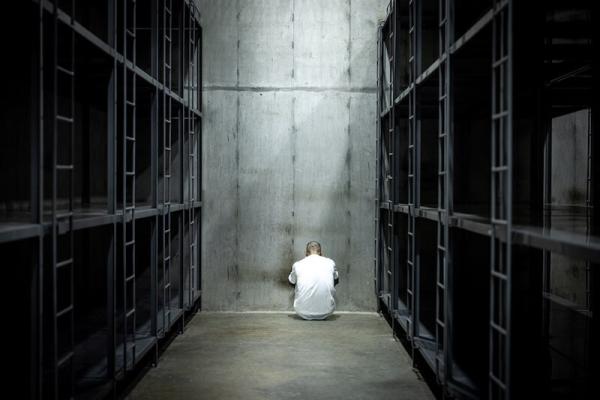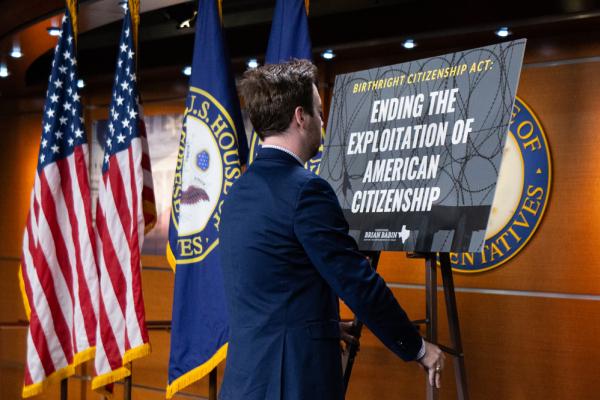Georgia Sen. Raphael Warnock has only been in office for a few months, but he’s already reminding religious progressives about the importance of voting rights.
On Sunday, April 18, at a virtual event hosted by Union Theological Seminary, Warnock’s alma mater, the minister and Democrat U.S. senator detailed how he became a staunch defender of voting rights. He also outlined why progressives have a responsibility to combat restrictions.
Throughout the event, Warnock emphasized his own approach: Pushing federal legislation to counter state-level restrictions.
“We needed federal legislation in 1965,” Warnock observed. “We need federal legislation this year.”
The senator is a co-sponsor of the For The People Act, which would mandate mail-in voting and automatic registration, among other ballot access reforms. Warnock also supports the John Lewis Voting Rights Act, which would essentially update portions of the 1965 Voting Rights Act that were ruled unconstitutional in the 2013 Supreme Court Shelby v. Holder.
Warnock was joined by Union's president, Serene Jones, as part of a digital series on progressive faith and politics. The event followed Warnock’s defense of voting rights the Senate floor in March in response to legislation proposed by Georgia Republicans to tighten the state's voting restrictions. The new Georgia law, which was signed into law by Republican Gov. Brian Kemp on March 25, is the first of several attempts by state Republicans to combat Democratic wins following the 2020 election; the law includes stricter voter ID requirements for absentee voting, limited drop boxes, and gives state politicians more control over elections.
In the weeks following, businesses, from Major League Baseball to movie production, began to leave the state.
Warnock cautioned against blaming the residents of Georgia for the advent of these new restrictions.
“While we’re challenging Georgia, let’s remember what it did for the rest of the country,” Warnock said, referencing his and fellow Georgia Sen. Jon Ossoff’s election, which gave the Democratic Party a narrow majority in the Senate. “Our state legislature decided that they didn’t like the outcome, so they got busy, along with 42 other states, trying to change the rules. Let’s be very clear: They’re trying to restrict voting.”
Accordingly, Warnock expressed worry that boycotts and other condemnation from companies like the MLB and Coca-Cola might unintentionally harm Georgia residents more than their representatives.
“Boycotts require a lot of precision,” he said, suggesting that concerned businesses instead focus on taking that energy directly to the responsible politicians. “I want to invite people to come to Georgia, do business here, and as you put a stake in the ground here, hold politicians accountable for their actions.”
Warnock said his political intuitions were forged during his first months at Ebenezer Baptist Church in Atlanta, where he has served as senior pastor since 2005. After his time at Union, where he studied under liberation theologian James Cone, Warnock was the youngest person to serve as Ebenezer’s senior pastor — a role once filled by Rev. Martin Luther King Jr.
Warnock reminisced on joining the church not long after Hurricane Katrina. The damage from the hurricane — and the lack of federal response — initially drove over a million residents from the Gulf Coast to other states seeking refuge. Many Louisiana voters, especially Black voters, were still displaced at the time of municipal elections in the spring of 2006. The distance, on top of lost homes, community centers, churches, loved ones, and livelihoods, created a difficult barrier for those trying to cast a vote, Warnock said.
“At the same time, ironically, we were boasting as a country that we had liberated Iraq, and had brought democracy to Iraq,” Warnock recalled. “I said to myself: ‘If democracy is good for Iraq, heck, we ought to try and bring it to Louisiana.’” In one of his first acts as senior pastor, Warnock steered Ebenezer to plan transportation for Louisianans displaced in Atlanta to vote.
Warnock became Georgia’s first Black senator after the state, along with the entire country, saw record-breaking voter turnout in 2020. That turnout came in large part to the work of faith communities to turn out voters.
Throughout the 2020 Senate race, Loeffler continuously attempted to damage Warnock’s character, launching similar rhetorical attacks against the now-senator as those weaponized against King.
Warnock discussed the police killings of 13-year-old Adam Toledo in Chicago and Daunte Wright in Minneapolis, connecting the movement for voting rights and racial justice.
“I just want to urge us to remain urgent in our struggle for justice, to remain vigilant, to continue to talk to the folks whose challenges will make us appropriately uncomfortable, so that we might live more deeply into the holiness to which God has called us to live as a community,” he said. “And we’ve got to do it in the name of George Floyd, in the name of Daunte Wright and so many others. Tamir Rice. Breonna Taylor. Sandra Bland.”
Reflecting on his first Senate speech, Warnock again emphasized the need for progressives of faith to prioritize voting rights as a faith-based imperative.
“I believe that democracy is the spiritual enactment of a political idea: This idea that all of us have within us a spark of the divine,” he said, citing the doctrine of imago dei. “Democracy is the expression of faith in human beings and our right to have a sense of self-determination and agency. Wherever that is crushed, I think that’s a moral issue — it’s not just a political issue.”
Got something to say about what you're reading? We value your feedback!







